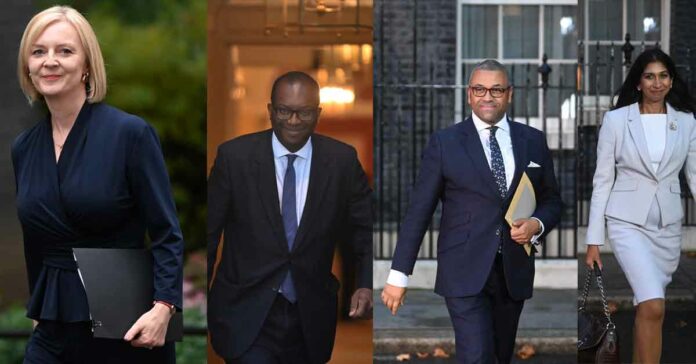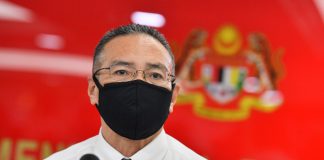LONDON, Sept 7 — British Prime Minister Liz Truss appointed her Cabinet on Tuesday.
Truss appointed former work and pensions secretary Therese Coffey, as new health secretary and deputy prime minister.
They are known to have been close friends for a long time and rose through the political ranks together.
Kwasi Kwarteng was appointed Chancellor of the Exchequer. He is the former business and energy secretary.
James Cleverly was appointed foreign secretary. He was education secretary for a short period and before that a minister in the Foreign, Commonwealth, and Development Office.
Former attorney general Suella Braveman was appointed home secretary.
The four great offices of the British state are prime minister, chancellor, foreign secretary and home secretary. And for the first time in British history, none are held by white men.
Also, for the first time, the three offices of state, excluding the premiership, are held by ethnic minorities.
Truss is the third female prime minister, with all hailing from the ruling center-right Conservative Party.
Elsewhere, Truss appointed former leadership candidate Penny Mordaunt as leader of the House of Commons, and Lord True as leader of the House of Lords.
Ben Wallace remains defence chief.
Former leadership candidate Tom Tugendhat will attend the Cabinet as security minister in the Home Office.
Jacob Rees-Mogg was appointed business and energy secretary. A prominent Boris Johnson loyalist, he was previously minister for Brexit opportunities and government efficiency.
Simon Clarke was appointed as Secretary of State for Levelling Up, Housing and Communities. He was previously chief secretary to the Treasury, who is the second-in-command to the chancellor.
Kemi Badenoch was appointed International Trade Secretary. She is a darling of the right-wing of the Conservative Party membership for her hardline conservative views on culture wars.
Jake Berry was appointed minister without portfolio and Conservative Party chairman. He is a prominent Conservative MP from the north of England, which switched from Labour to the Conservatives in the last election and has been the focus of political attention ever since.
Notable from Truss’ appointments is the absence of any high-profile supporters of her leadership rival Rishi Sunak, let alone the man. Sunak was one of the final two candidates alongside Truss.
The Conservative Party is bitterly divided on several issues, not least the proper economic policy to pursue amid a deteriorating national economic outlook, yet Truss has prioritised loyalty over party unity.



















